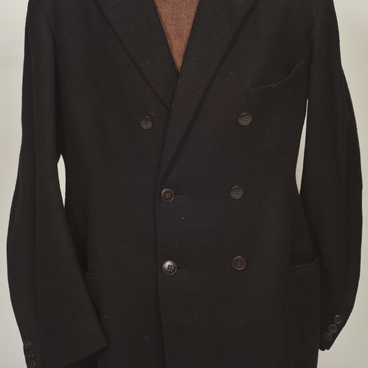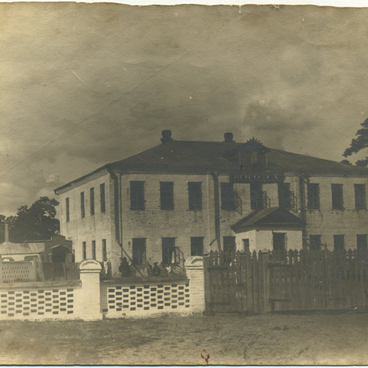The chair was kept by Ilya Schneider, administrator of the Isadora Duncan dance school in Moscow, and was passed to the museum in 1977. This is an upholstered armchair with a back, decorated with bronze overlays, from the mansion of ballerina Alexandra Balashova. The American dancer Isadora Duncan lived in this mansion during her stay in Soviet Russia.
Schneider recalled: “As the rough cold weather set in, I attacked Lunacharsky, trying to reclaim the rooms of ballerina Balashova in her mansion on Prechistenka Street for Duncan. The rooms had been sealed by the Soviet Secret Police after Balashova fled abroad… This house was given to the Moscow school of Isadora Duncan. We also lived there.
I remember how I saw Isadora one day standing silently on the white marble staircase of the mansion. She looked from under her brows at Balashov”s ceiling beauties, a marble balustrade, rosewood columns dotted with gold stucco… Then she said: “I have been saying for a long time that we need to strip off all this gilding together with the Romans and Greek women and whiten everything! ” I remember that after the 1917 February Revolution, when some kind of charity ball was held at the Bolshoi Theatre, I visited Balashova. She took me around the mansion, even showed me her bedroom, which looked like a small hall and was separated from the boudoir by a small dressing room. This room — the bedroom — later became Isadora Duncan”s room. "
Ilya Shneider also recalled how Esenin worked on a poem in one of the rooms of the mansion: ‘I saw Esenin writing poetry only once. It was afternoon: he was sitting at Isadora’s large mahogany desk, quiet, serious and focused. That day he was writing The Wolf Doom poem’. When after a while I went into the room again, he, without his inherent impulsive movements, as if he was heavily burdened with something, got up from the chair and, holding a sheet in his hands, asked me to listen to him…’
The poet, by his own confession, lived here ‘like in a bivouac’: ‘Without a shelter and a refuge, because various idlers, Rukavishnikov among them, began to come to my home and to bother me. You see, they want to drink with me! I don’t even know how to get rid of such outrageous intruders, but I am ashamed and sorry to ruin myself by drinking, ” he wrote to literary critic Ivanov-Razumnik.
Schneider recalled: “As the rough cold weather set in, I attacked Lunacharsky, trying to reclaim the rooms of ballerina Balashova in her mansion on Prechistenka Street for Duncan. The rooms had been sealed by the Soviet Secret Police after Balashova fled abroad… This house was given to the Moscow school of Isadora Duncan. We also lived there.
I remember how I saw Isadora one day standing silently on the white marble staircase of the mansion. She looked from under her brows at Balashov”s ceiling beauties, a marble balustrade, rosewood columns dotted with gold stucco… Then she said: “I have been saying for a long time that we need to strip off all this gilding together with the Romans and Greek women and whiten everything! ” I remember that after the 1917 February Revolution, when some kind of charity ball was held at the Bolshoi Theatre, I visited Balashova. She took me around the mansion, even showed me her bedroom, which looked like a small hall and was separated from the boudoir by a small dressing room. This room — the bedroom — later became Isadora Duncan”s room. "
Ilya Shneider also recalled how Esenin worked on a poem in one of the rooms of the mansion: ‘I saw Esenin writing poetry only once. It was afternoon: he was sitting at Isadora’s large mahogany desk, quiet, serious and focused. That day he was writing The Wolf Doom poem’. When after a while I went into the room again, he, without his inherent impulsive movements, as if he was heavily burdened with something, got up from the chair and, holding a sheet in his hands, asked me to listen to him…’
The poet, by his own confession, lived here ‘like in a bivouac’: ‘Without a shelter and a refuge, because various idlers, Rukavishnikov among them, began to come to my home and to bother me. You see, they want to drink with me! I don’t even know how to get rid of such outrageous intruders, but I am ashamed and sorry to ruin myself by drinking, ” he wrote to literary critic Ivanov-Razumnik.


